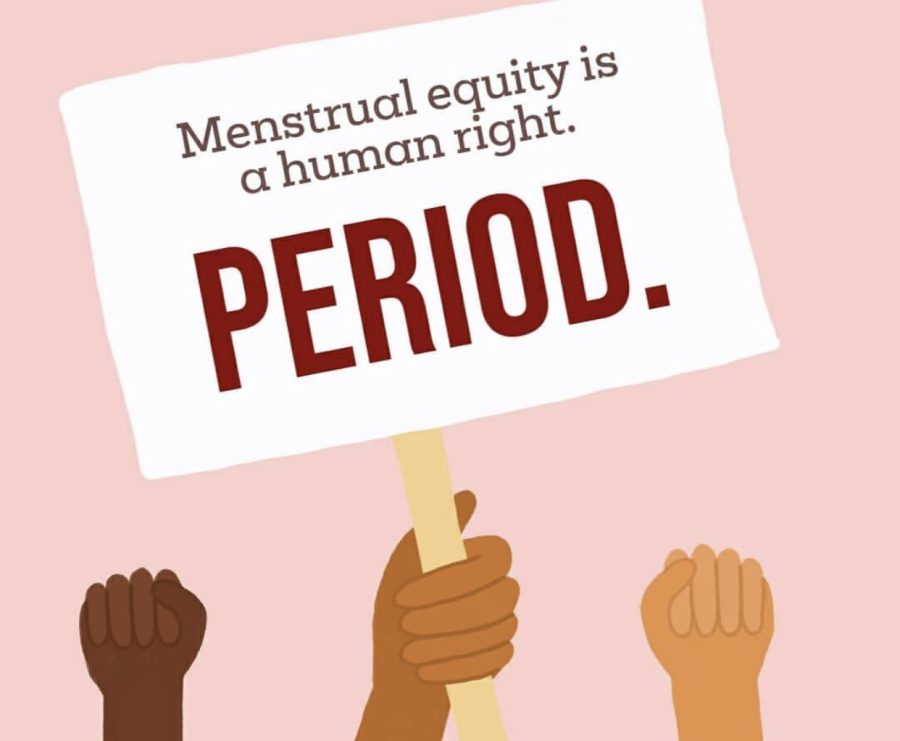Ending period poverty
@thestudentperiodmovement on Instagram
Menstruation is an expensive stigma to have in a world where even one’s bleeding is capitalized.
November 18, 2021
“I can’t help it if I have a heavy flow,” Bethany Byrd from “Mean Girls” tell us. It’s clear she is an advocate for using size 5 pads and tampons, but what about buying them? The sanitary products designed for heavier flows and organically made products are often priced more than baseline products. This is only one cause of the period poverty crisis from which millions of menstruators suffer.
Period poverty is the inadequate access to menstrual hygiene tools and education, including but not limited to sanitary products, washing facilities and waste management. This global crisis disproportionately affects homeless people, incarcerated people, students and federal employees who do not have access to free hygiene products.
Substituting period products with subpar solutions like toilet paper can be life-threatening. For example, menstruators in developing parts of the world, such as sub-Saharan Africa and India, are prone to using paper, old clothes, leaves, cotton or wool pieces. Having no choice but to resort to unhygienic practices makes infections like toxic shock syndrome (TSS) possible, which is a rare disease caused by toxins in the bacteria entering bloodstream.
For perspective, if a woman was to use three to five pads a day over a five-day period, they would likely spend around $4,752 in their lifetime on pads, that is without tax. Unlike other basic hygiene products, tampons and pads are not covered by the federal Supplemental Nutrition Assistance Program or Medicaid. The “pink tax” is a price discrepancy in which services and products marketed to women cost more than identical products or services marketed to men. Out of the 50 U.S. states, 30 states still have this pink tax. In states like Utah, pads are seen as a luxury item, therefore it is taxed, whereas condoms are untaxed.
Dismantling the taboos of bleeding is the first step needed to end period poverty. In many traditional societies, bleeding is seen as impure. Being self-conscious that people can smell your period or see your pad is an unnecessary worry when none of that is likely if you’re properly wearing your choice of sanitary product. Walking around campus with granny panties holding an extra-long pad is not embarrassing when you’re comfortable.
Although this is easily verbally done, no change can be enacted without the support of lawmakers. There’s only so much activists and grassroots campaigns can do for those in need of hygiene products; donations are temporary, laws are finite. In May, New York Congresswoman Grace Meng introduced the Menstrual Equity for All Act of 2021, the boldest legislation yet to combat period poverty. Some important highlights of this bill are giving states the option to use federal grant funds to provide students with free menstrual products in schools, and allowing homeless assistance providers to use grant funds that cover shelter necessities.
Free and untaxed period products are a right, not a privilege. Periods are a natural bodily function, so it is a shame to be degraded with the phrase “Oh, you’re on your period.” Instead of trying to prove weakness, we should be empowering menstruators since anything you can do, they can do while bleeding. There is no equity when those who menstruate bear the financial and physical distress as a consequence of the reproductive cycle needed to ensure human survival.





